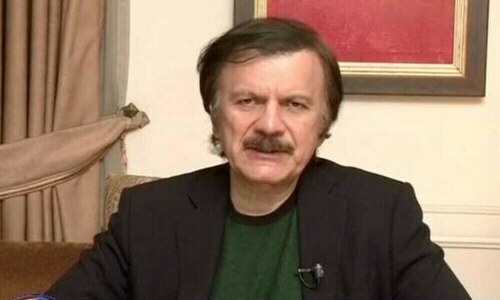Government Outlines Growth-Focused Economic Strategy for FY26
LAHORE: Haroon Akhtar, the Special Assistant to the Prime Minister on Industry and Production, presented the government’s economic strategy on Saturday, highlighting a transition from stabilization measures to growth-oriented policies in the forthcoming budget.
Akhtar emphasized Prime Minister Shehbaz Sharif’s commitment to “inclusive progress” through collaboration with all relevant parties and reduced bureaucratic obstacles across various sectors.
He was speaking at a consultative session on the Federal Budget 2025-26, which was hosted by the Federation of Pakistan Chambers of Commerce and Industry (FPCCI) regional office.
Akhtar underscored the vital importance of Small and Medium Enterprises (SMEs), describing them as the “lifeline of industry,” and pledged specific support to improve their efficiency. He stated that while the previous budget addressed economic stabilization, the next budget will prioritize advancement, export enhancement, and industrial recovery.
To stimulate exports, the administration intends to place exporters in a favorable position using targeted actions, with a focus on increasing shipments of halal meat, dairy products, mangoes, onions, and citrus fruits.
Tax breaks for electric vehicles and initiatives to revitalize inactive industries were also revealed as components of the plan to boost manufacturing and create jobs.
Concerning sustainable energy, Akhtar announced that a plan to generate biogas from manure is being examined, which may greatly lower the expenses of petroleum imports. He emphasized the government’s dedication to a growth model led by the private sector, stating that expert advice will inform policy choices to guarantee effectiveness and competitiveness.
Saqib Fayaz Magoon, Senior Vice President of FPCCI, emphasized the essential role of pre-budget proposals, noting that previous recommendations had little impact despite their relevance.
He emphasized that this year’s proposals were developed while keeping IMF requirements in mind, stressing the necessity for long-term industrial policies to ensure industry stability. He emphasized that industries should be designed for the long run, not just for the short term, and he urged for cross-party agreement to protect economic and industrial policies from political changes.
Magoon pointed out structural flaws in the Export Finance Scheme (EFS), noting its detrimental impact on the ginning and spinning industries, where about half of the businesses have allegedly closed. He pushed for the immediate removal of the 18% sales tax on local enterprises under EFS and advocated for a review of energy tariffs to reduce production costs. He highlighted bureaucratic inefficiencies, requesting that the Federal Board of Revenue (FBR) consult with stakeholders before issuing Statutory Regulatory Orders (SROs), which he considered unworkable in their current form.
He also suggested lowering the 4% sales tax on unregistered businesses to broaden the tax base.
Zain Iftikhar, FPCCI’s Regional Chairman, advocated for a greater emphasis on agriculture, calling it the “backbone” of Pakistan’s economy. He emphasized the systemic issues that farmers confront, such as insufficient crop prices, which he said prevent them from obtaining resources for future cultivation. Iftikhar advocated for the abolition of the 17% sales tax on seeds and a reduction in GST on fertilizers, which have seen price increases of 250% since 2020.
He lobbied for lower power rates for tube wells, increased use of modern agricultural technology, and tax cuts on diesel, which is largely used in agriculture. He urged the federal government to provide interest-free loans to farmers in order to assist smallholders.
Earlier, Haroon Akhtar Khan, Special Assistant to the Prime Minister for Industries and Production, presented the Prime Minister’s SME Development Vision during a media briefing at the Small and Medium Enterprises Development Authority (SMEDA) office on Saturday, prior to the SMEDA Board of Directors’ meeting. He was joined by Saif Anjum, Federal Secretary for Industries and Production, and Suqrat Aman Rana, SMEDA’s Chief Executive Officer.



Comments (0)
No comments yet. Be the first to comment!
Leave a Comment